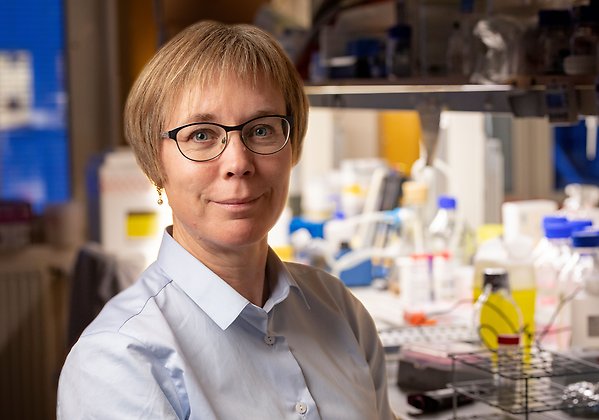Professor Karin Forsberg Nilsson:
“Donations are important for good research”

As Karin Forsberg Nilsson, Dean of the Faculty of Medicine, sees it, donations create a personal relationship between the donor and the researcher. People give to the causes they care most about and so the relationship is conditional on the donor feeling confidence in the researchers and their research.
The Faculty of Medicine sometimes receives donations earmarked for specific purposes in both basic and clinical, patient-oriented research. Almost 70 per cent of research at the Faculty of Medicine is externally funded, with resources coming from research councils, foundations and funds. Some of these, such as the Swedish Cancer Society, the Swedish Heart Lung Foundation and the Swedish Brain Foundation, rely on donations from private individuals.
“Donations are extremely important for Swedish research in general. Of course, it feels particularly gratifying when private individuals or companies recognise that we do good research at the faculty and therefore actively get in touch with us because they want to donate money to our research. Sometimes the donors are former students who feel a desire to give something back to the University, sometimes private individuals who have or have had family members with cancer or other serious diseases. They want their donations to help research make faster progress. It is very much appreciated and the donations really do contribute to our ability to conduct good research,” says Karin Forsberg Nilsson.
“Often a donor is looking to make an impact on health care, but it doesn’t have to be that way. They may also have a genuine interest in supporting basic research in genetics, for example.”
This form of funding differs from others, in Forsberg Nilsson’s opinion.
“Unlike the donations given to organisations like the Swedish Cancer Society or the Swedish Heart Lung Foundation, which researchers can then apply to for support, these donations create a personal relationship between the donor and the researcher. People give to the causes they care most about. The relationship therefore presupposes that the donor feels confidence in us and our research. For this reason, we are keen to nurture long-term relationships through personal meetings. We generally invite donors to regular meetings and agree with them about written reports or any other way they would like to be involved in the project.”
